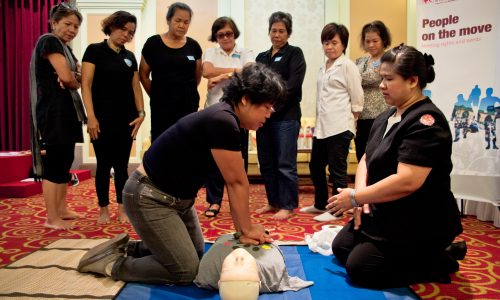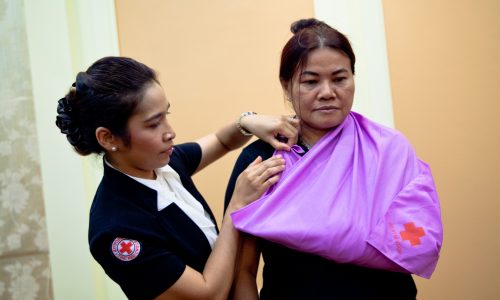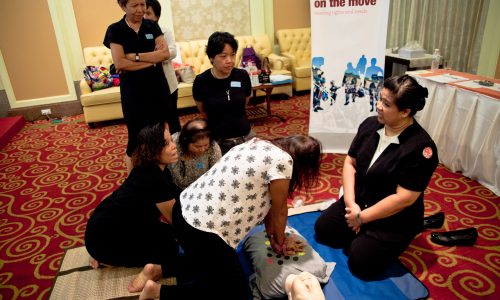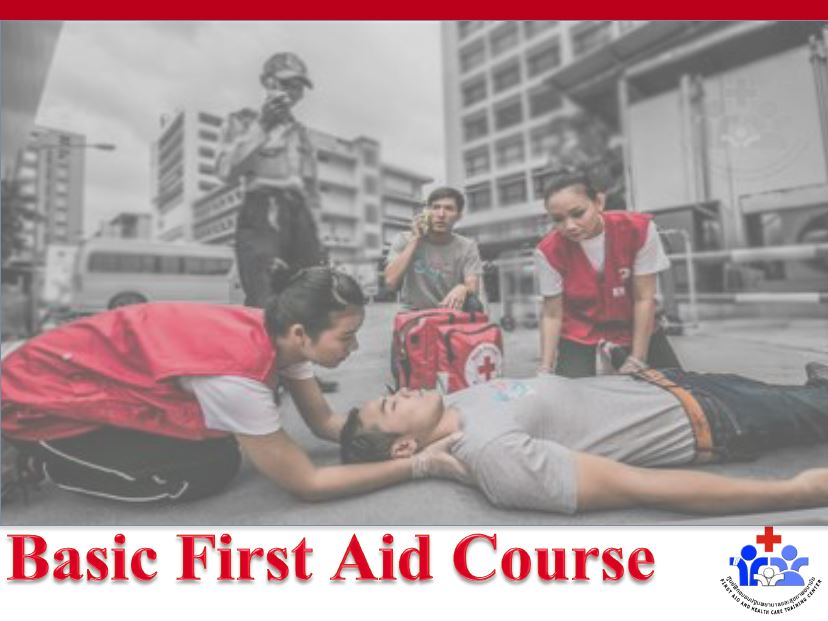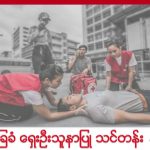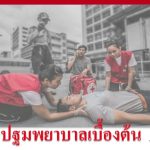What would you do if you see someone choking or fainting? The answer is simple: call for help and give first aid. But what would you do if you were a migrant working in a foreign country, with limited knowledge of local language, little information about emergency services available and no community networks?
“My current employer often asks what would I do in a case of medical emergency” says Zarni, 33, a nanny from Myanmar with a decade-long experience in Thailand. She takes care of a new-born and a 5-year-old while their parents are at work.
After a first aid training by the Thai Red Cross Society, Zarni and her fellow Burmese migrants now have the skills and confidence to handle minor medical emergencies which can happen at home, at the workplace or on the street.
“Before the training I only knew how to apply a band-aid, but thanks to the Red Cross I have learned how to help the family I work for as well as my friends and myself”, Zarni continues.
Zarni is one of the estimated 120 000 Burmese domestic migrant workers who are servicing households in Thailand by keeping them clean, cooking, doing laundry and grocery shopping. But most importantly on top of their housekeeping duties domestic guardians also take care of children and elderly. In the case of medical emergency they have to act as first responders before the professional help arrives.
“Teaching Burmese migrants first aid skills brings many benefits not only for them and their employers in Thailand but also for their people in Myanmar”, reflects Poonsap Tulaphan, director of the Homenet, Bangkok-based network of Thai and Burmese domestic workers.
“Most of the Burmese migrants come from isolated rural communities that have limited access to emergency healthcare. The skills they learn in Thailand will stay with them when they go back home.”
A crash course tailored to meet the migrants needs
In September 2016, the Red Cross started the First Aid education for Burmese and Thai domestic workers in Thailand.
“Training Burmese migrants is a new experience for us. We recognize that migrants have limited training opportunities and are happy to do something useful for them. In the beginning we were a little bit worried about the language barrier, but I am glad to see that the group engages well and uses the handouts in Burmese language”, says Nittaya Romrean, Head of first aid training section, First Aid and Health Care Training Center, the Thai Red Cross Society.
To meet the specific needs of this target group, the Red Cross developed a tailored migrant-friendly one-day crash course. It begins with the techniques to perform a primary survey of the scene and the victim and the information about emergency numbers in Thailand.
Ten learning modules are delivered through role plays, videos and exercises to explore various first aid emergencies and put acquired skills into practice. Participants learn the first aid techniques for handling minor medical emergencies, such as treatment of a foreign objects in the eye and ear, choking, fainting, dog and snake bites, management of bleeding, wounds and fractures. In addition, they learn how to administer cardiopulmonary resuscitation (CPR) for children and adults.
“The Red Cross has already trained about 70 Burmese and 30 Thai domestic workers. We really hope these skills will help domestic workers to provide initial and timely assistance to a victim before the emergency help arrives,” says Nittaya Romrean from the Thai Red Cross Society.
“They could save someone’s life even by just knowing how to call the ambulance or other emergency services”, she concludes.
By Elena Nyanenkova, IFRC
This story is also accessible from this link.
To learn more about the Thai Red Cross Society please visit http://english.redcross.or.th/home
![]()


